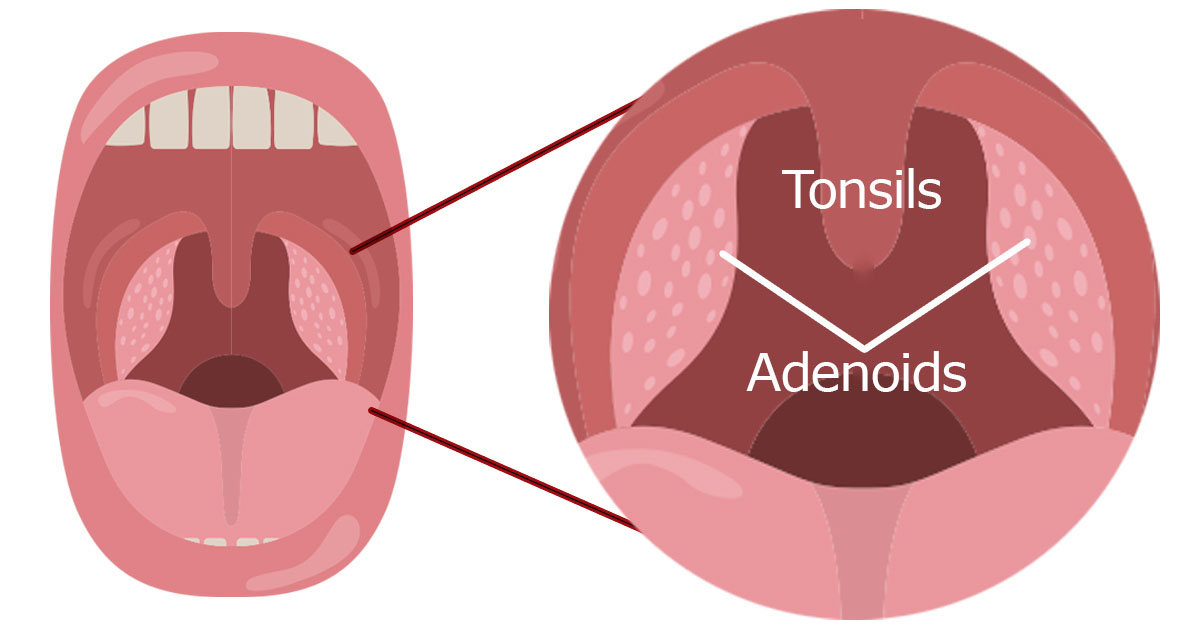
What are Tonsils and Adenoids?
Tonsils and adenoids are part of your body's immune system. Specifically, they help protect you from bacteria and viruses that can enter your body through your nose or mouth. You have two tonsils that are visible in the back of your mouth. Your adenoids, which are not normally visible without special instrumentation, are located behind your nose and roof of your mouth.
Common difficulties with tonsils or adenoids that may require treatment include bacterial or viral infection (tonsillitis), and swelling/inflammation
Causes of Difficulties with Tonsils and Adenoids
Infection of the tonsils or adenoids is most often caused by a viral infection. Viral infections usually heal on their own or can be treated with over-the-counter medication. Typical recovery times for viral infections of your tonsils or adenoids are about one week.
Bacterial infection of your tonsils or adenoids are more serious than viral infections. Bacterial infections normally requires treatment with prescribed medications or antibiotics.
Other common causes or infections that can result in difficulties with your tonsils or adenoids include:
- Contact with another sick person
- Streptococcus pyogenes infection (strep throat)
- Epstein-barr virus, or mononucleosis (mono)
Symptoms and Diagnosis of Tonsil and Adenoid Difficulties
Symptoms that are often associated with difficulties with your tonsils and adenoids include the following:
- Sore throat
- Voice hoarseness
- Yellow or white spots on the tonsils
- Tonsils appearing red or swollen
- Foul smelling breath
- Jaw or neck tenderness
- Neck stiffness
- Difficulty swallowing, including pain when swallowing, coughing, or gagging
- Headaches
- Fever or chills
- Earaches
- Stomachaches
Diagnosis of difficulties with your tonsils or adenoids will often involve reviewing your symptoms and a physical examination. The examination may include using a lighted mirror to inspect the tonsils, mouth, tongue, and throat area to look for signs of infection. Your ENT specialist will also likely use a stethoscope to listen to your breathing, feel your neck area for swollen lymph nodes, or potentially taking a swab or blood sample to test for different infections.
Treatments for Tonsil and Adenoid Difficulties
Bacterial infections of the tonsils and adenoids are usually treated with prescribed antibiotics. If you suffer from frequent infections of your tonsils or adenoids, your ENT specialist may recommend surgery to remove your tonsils (tonsillectomy) or adenoids (adenoidectomy). If your airways are partially blocked due to inflammation, steroids, such as prednisone, may be helpful in treating the symptoms.
